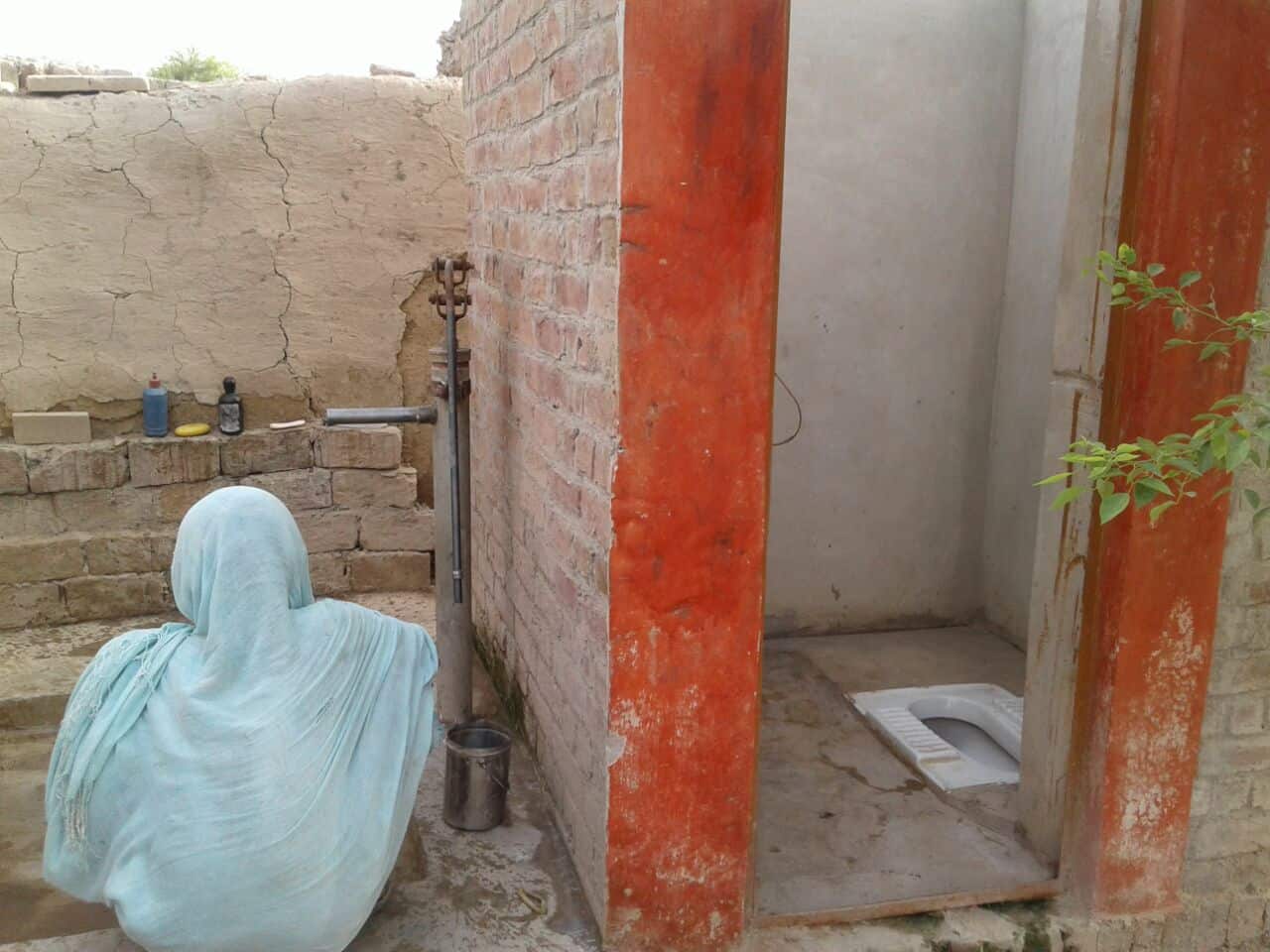“Coming from a Middle Eastern background, I grew up surrounded by horror stories of my homeland,” said Batual Abdul Hussain, second-year UTSC student. “I always believed I would give back to those who were not as fortunate as myself to be among the emigrants who had the opportunity to a safe life.”
Abdul Hussain is the President of Friends of Zahra Trust, a non-profit group at UTSC in affiliation with the UK-based organization The Zahra Trust. She, like many at the university, has a deeply personal reason to be driven to charity work.
Maeryl Sumagang, third-year student and President of the UTSG Free the Children branch, is driven in part by the sense of community the charity work offers: “I always remind my executive members that education will always take priority — after all, they are paying thousands of dollars to be in this school. However, there is a strong sense of community and belonging that one can get when they find a niche of people that have the same passions and mindset as them.”
Earthquakes, hurricanes, refugee crises, and the recent American immigration block — these circumstances draw people towards acts of charity. Yet, even outside of the visible crises that the world undergoes from time to time, many people report a feeling of attraction, or even obligation, to charitable acts.
The meaning of charity varies among people, from an active duty that must be fulfilled to simply comforting a loved one. For others it may be a passive thought, like throwing a toonie in a jar to help needy children halfway across the world.
The idea of charity is ancient and widespread, with references of it spanning from Chinese classical thought to ancient Greek philanthropy, as well as aged civilizations in sub-Saharan Africa. An ancient Chinese proverb says, “To have virtuous citizens who are kind to their neighbours, this is precious treasure for a country.” It would seem that the ethos of charity is ingrained in human life; the idea has manifested throughout history in many varied forms. And among many attempts to explain the reasons for this phenomenon, it remains, at least somewhat, mysterious.
Dame Suzi Leather, the Chair of the Charity Commission in London, says in a letter to The Guardian, “New Mori research conducted for the Charity Commission shows that public trust and confidence in charities has increased in the last three years, with people saying that they trust charities more than many other bodies including social services, banks and local councils. The research indicates that younger people (aged 18-44) are more likely to have trust and confidence in charities than older respondents.”
The modern act of charity can be seen through the Ontario Secondary School requirements, where high school students must complete a certain number of unpaid volunteer hours.
This method may have the capacity to make students more active in society, as well as genuinely help the individuals and communities that benefit from such organizations.
At the university level, students at U of T make time to combine their minds and efforts in an attempt to relieve those who are suffering from poverty, lack of education, lack of social and human rights, mental disorders, illnesses, and other social inequalities.
Friends of Zahra Trust has a team of dedicated members that volunteer their time for donation events, advocacy tabling, food drives, tutoring, and schooling opportunities for children. They work towards relieving poverty, lack of education, and unsuitable water resources.
Abdul Hussain said, “The first thought that comes into mind when the average person hears charity is money. But charity is something more special than that.”
The club engages in international trips as well. Friends of Zahra Trust will be going on a trip to Iraq in August of 2017, where they will help teach orphans in the city of Najaf and rebuild holy sites that have been destroyed by violence.
Indeed, Abdul Hussain’s efforts are making a tangible difference. Friends of Zahra Trust collected $20,000 from an art auction at the Naynawah Conference held in early October 2016 by the Afghan Canadian Islamic Community in North York. Proceeds from the event went towards building water-wells in water-depleted regions of Pakistan.
She further explains, “Without a shadow of doubt, I sincerely believe humans have the ability to change the world… If we do not succeed in making that change, I still believe it is incumbent upon us to try.”
Many types of religious thought give significance to the act of charity. Jewish law states that the act of charity is a mitzvah, meaning a commandment, and is therefore mandatory for those following the Jewish faith. In a 2013 article compiled by Gordon Hardy for the Harvard Divinity School, Jon D. Levenson, Albert A. List Professor of Jewish Studies, writes: “The framework is once again theological; charity is based in something higher and more enduring than feelings of compassion or guilt.”
In Christianity, the actions of Jesus speak for the importance of giving back to those in need. In reply to the verse “love thy neighbour as thyself” in the Gospel of Luke, an expert in the law asks Jesus, “Who is my neighbour?”
Jesus replies using the parable of the Good Samaritan, explaining the story of a half-dead, stripped man who was robbed, lying on the road as people pass by him. A Samaritan, who were rivals of the Jews, then passes by the man and takes care of the man’s injuries and transports him to a care facility.
Dudley C. Rose, Associate Dean for Ministry Studies, writes in the Harvard Divinity School article: “Jesus asks, ‘Who do you think was a neighbor to the man who fell into the hands of the robbers?’ The expert says, ‘The one who had mercy on him,’ and Jesus responds, ‘Go and do likewise.’”
Through such excerpts in the Holy Bible, the Christian faith emphasizes the significance of helping those in need.
The Islamic faith has many forms of charity, the most obvious of which is Zakat, which means almsgiving. Zakat is one of the five pillars of the religion and is a method of redistributing one’s wealth.
Jocelyne Cesari, Lecturer in Islamic Studies, writes, “In the modern world, we see charity as a much more personal act, but in the ancient Islamic world it was much more a community duty.”
The fashion in which charity is best given is also explained for the followers of Islam in the Holy Quran. Chapter 2, verse 271 of the Holy Quran states, “If you do deeds of charity openly, it is well; but if you bestow it upon the needy in secret, it will be even better for you, and it will atone for some of your bad deeds. And God is aware of all that you do.”
The Holy Bible similarly says in Matthew 6:3-4, “But when you give to the needy, do not let your left hand know what your right hand is doing, so that your giving may be in secret. And your Father, who sees what is done in secret, will reward you.”
The Buddhist perspective on charity deems it as a spiritual act. Generosity is one of the six “perfections” or “virtuous qualities” a human being can possess.
Chris Berlin, Instructor in Ministry, writes, “Buddhists often quote the Buddha from an early scripture: ‘What is the accomplishment in generosity? A noble disciple dwells at home, with a heart free from the stain of stinginess, open-handed, pure-handed, delighting in relinquishment, one devoted to charity, one who delights in sharing and giving. This is called accomplishment in generosity.’”
Sikhism, which was founded by Guru Nanak in the early sixteenth century, making it one of the world’s youngest religions, also speaks to charity. Nanak states in the Japji, the Sikh morning prayer, that, “Pilgrimage, penance, compassion, and charitable giving, [only feed one’s ego] and bring merit as much as a sesame seed.”
Harpreet Singh from the Department of South Asian Studies writes, “This, however, does not mean that he is discouraging Sikhs from engaging in charitable acts. In fact, Nanak sought to create a society in which the indigent and the oppressed are looked after.”
While looking after the oppressed and donating what we can are obvious factors of charity, the aspect of sacrifice is often overlooked. Again, we can look to history for major examples of charitable sacrifices.
Seventh century leader Hussain, for example, made a revolutionary sacrifice for social justice in the face of tyranny and bigotry. He was also the grandson of the Holy Prophet Muhammad, the last prophet of Islam. He was well known for his compassion, kindness, and ability to see beyond social classes and colour.
Hussain was forced to choose between letting the people of his time continue to be oppressed and pledging allegiance to a tyrant by the name of Yazid, the second Caliph of the Umayyad dynasty; or risk his own life by taking a stand against such evil. He ultimately made the decision to fight against the tyranny and deemed that the sacrifice of his life was small compared to the benefit it entailed.
The story of Hussain is an example of tragic sacrifice as a way to move forward a corrupt-free message that would save the lives of the poor, people of colour, and humanity in general in the future.
Hussain had only an army of 72, compared to the oppositions army size of 30,000. The tyrants had cut his access off to food and water in the scorching heat of Karbala, a city in central Iraq. But still, Hussain stood by his principles until he was killed.
Another example is Mahatma Gandhi, a non-violent protester for social progress. He fasted for as long as 21 days in protest against the caste separation of India. Gandhi sacrificed his own wellbeing in an attempt to send an impactful message to the government of his time.
During his life, Gandhi said, “I learned from Hussain how to be wronged and be a winner, I learnt from Hussain how to attain victory while being oppressed.”
To this day, millions of Shia Muslims across the world mourn Hussain’s death on the day known as Ashura. Many also visit the resting place and shrine of Hussain and his companions in Karbala. They mourn his death every year on the day known as Ashura.
Because charity has the ability to revolutionize and move the way people think and exist throughout centuries, it is important to become an active member of society. Students can begin by joining non-profit clubs at their educational institute or volunteering at local food banks and youth groups.
Charity also entails advocacy and education, so attending conferences, participating in interactive activities, and even reading the news can help the life of another person.
Giving, fortunately, is more accessible than society often makes it out to be. Charity is capable of bringing warmth to even the coldest of situations and we will keep it going for centuries to come.
It can be difficult for students to sacrifice their time for charity, but for Sumagang and Abdul Hussain, giving their time and effort elsewhere is important.
As Sumagang put it, working with Free the Children “is a great reminder that there is more to life than school and academics.”




